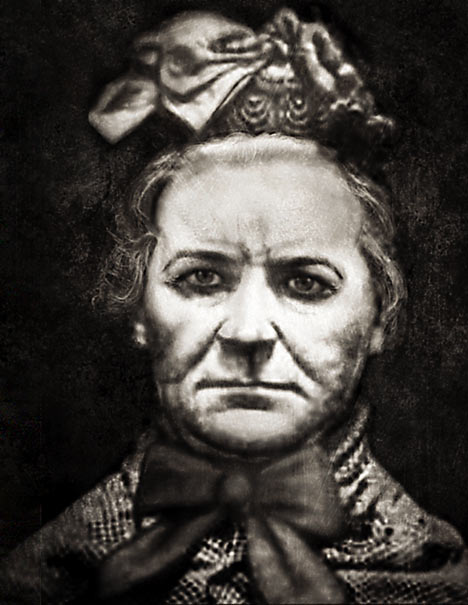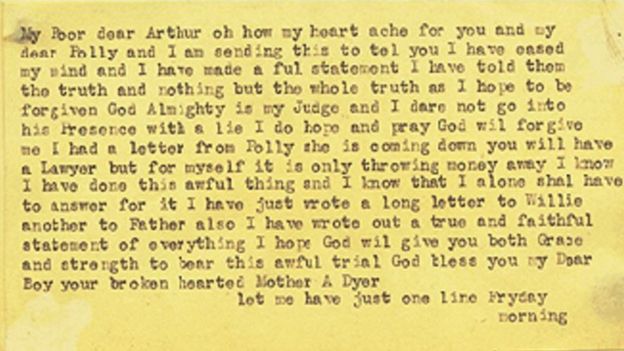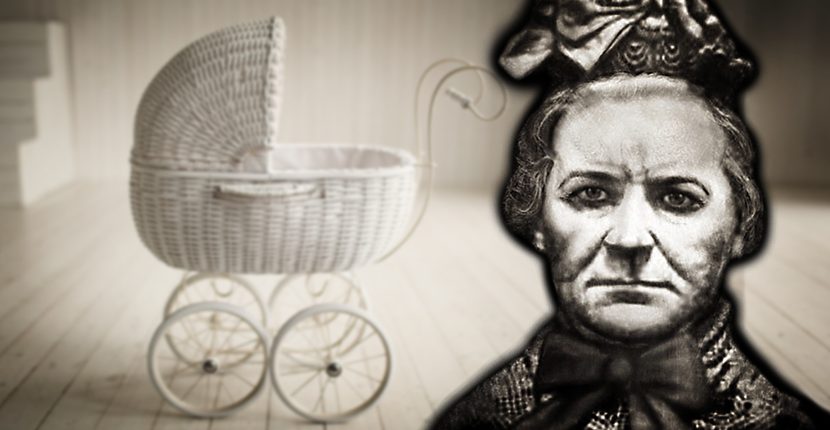Going through the most terrifying murder cases in history, one will certainly encounter the case of Amelia Dyer in 19th century Victorian England, who was found guilty of murdering hundreds of babies.

According to the BBC, Dyer — who was regarded as a respectable, modest woman — ended up in one of the most sensational trials of the period which finally revealed the cruel Victorian practice of “baby farming.”
The baby farming phenomena happened in the 19th century in Britain and the U.S. This practice followed a system in which infants were taken away and given to individuals who offered “childcare and confinement services.” In theory the caregiver would nurse them, and charged for their service on a weekly or monthly basis. Some of the children were simply unwanted, but many were born to poor families or single mothers who simply could not manage to care for a small child because they had to work long hours for meager pay.

The baby farmers were mostly middle-aged ladies who acquired the babies through nurses, midwives, or placing fake adoption advertisements in newspapers.
In 1868, Ernest Hart published a series of articles in the British Medical Journal following his own investigation into the practice. He alleged that baby farming was in effect commercial infanticide that was caused by the neglect of the baby farmers. Among these was the notorious child killer Amelia Dyer.

Dyer was born in 1837 to a family that couldn’t let her enjoy a decent childhood since she had to take care of her mentally ill mother. According to Crime Museum, LLC, she was first educated as a nurse and then a midwife — but by 1860 she had entered the lucrative business of baby farming.
Perhaps this cruel trade would have never succeeded if it wasn’t for the now-outrageous Poor Law Amendment Act of 1834 that protected the fathers of illegitimate children from the need to financially support their offspring. Thus, numerous women hardly made ends meet and had to look for unthinkable solutions.

Taking advantage of these poor women’s situation, baby farmers adopted their children — for a fee. Dyer promised that the infants she took would be given a safe home and the deserved care and attention.
Instead, Dyer made a plan on how to increase her profit and realized that she would obtain that by getting more children while those who were already in her care of could die from starvation and neglect.
Children suffered but no one could hear their desperate cry since Dyer silenced them with opium. This monstrous situation lasted for some time until the authorities smelled something fishy. There were too many infant deaths in the Dyer family. She was charged with neglect and sentenced to 6 months hard labor.
However, this was not the end of this devilish saga. After the sentence, Dyer continued handling baby farming on the sly, this time without even reporting the severe infant cases to the doctors but instead, she frequently moved from one place to another, getting rid of the bodies by herself on the way.

According to the BBC, on March 30, 1896, the police recovered an infant body in the River Thames. The baby had a white tape around its neck that suggested strangling, and it was wrapped in layers of linen, newspaper and brown paper.
The police traced the body back to Dyer’s home, in which she lived under the name of Mrs. Thomas. When the authorities searched Dyer’s residence, they realized that they were dealing with no ordinary criminal but a monstrous wrongdoer. Soon, more bodies with white tape around the necks were found so it didn’t take long before Dyer was arrested and brought before the Court.

In 1896, Dyer was tried while defending herself under the alibi of “severe mental disorder.” However, the jury was adamant and proclaimed her guilty for the death of an estimated 200 to 400 children. Dyer received a death sentence and was hanged that same year.
Read another story from us: LSD Cult for Children: The Rise and Fall of “The Family”
Though Amelia Dyer was not the only callous baby farmer in the country, somehow she received a notoriety that could never be erased. Luckily, her case and its widely publicized trial prompted a serious police investigation of the “baby farms” in both Britain and the U.S.
